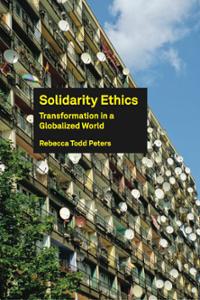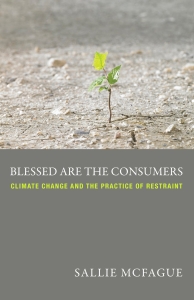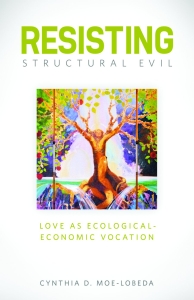-
Idols of Nations: Biblical Myth at the Origins of Capitalism
Roland Boer and Christina Petterson here produce a critical survey showing that the rise of capitalist theory was shaped by the way different economic philosophers read the Bible.
$29.00
-
By Bread Alone: The Bible through the Eyes of the Hungry
Here biblical scholars take readings of the Old and New Testaments, exploring the dynamics of hunger and its causation in ancient Israel and the Greco-Roman world and revealing the centrality of hunger concerns to the Bible.
$29.00
-
Environment, Economy, and Christian Ethics: Alternative Views on Christians and Markets
Economist Alistair Young argues that environmental policy raises important ethical and theological issues around uncertainty, inequality the rights of traditional communities, and the obligation to respect nonhuman creation.
$39.00
-
Solidarity Ethics: Transformation in a Globalized World
Rebecca Todd Peters argues for an ethic of solidarity as a new model for how people of faith in the first world can live with integrity in the midst of global injustice and shape a more just future.
$39.00
-
Political Vanity: Adam Ferguson on the Moral Tensions of Early Capitalism
Political Vanity aims to illuminate the central debates over the historical, moral, and political legitimacy of market capitalism by engaging central theorists of the Scottish Enlightenment, in particular the philosopher and sociologist Adam Ferguson.
$35.00
-
Christian Economic Ethics: History and Implications
Daniel Finn reviews insights provided by a large number of texts on economic ethics, from the Bible and the early church, to the Middle Ages and the Protestant Reformation, to treatments of the subject in the last century.
$49.00
-
Blessed Are the Consumers: Climate Change and the Practice of Restraint
In this timely book, Sallie McFague recalls her readers to the practices of restraint.
$29.00
-
Resisting Structural Evil: Love as Ecological-Economic Vocation
Cynthia Moe-Lobeda argues that the future of the earth is not simply a matter of protecting species and habitats but of rethinking the very meaning of Christian ethics.
$26.00
-
The Vision of Catholic Social Thought: The Virtue of Solidarity and the Praxis of Human Rights
The Vision of Catholic Social Thought traces the emergence of solidarity and human rights as critical theological and philosophical pillars of the anthropology and ethics foundational to the development of Catholic social teaching.
$39.00
-
Moral Issues and Christian Responses: Eighth Edition
This popular anthology for the study of Christian ethics, now in its eighth edition, has been a mainstay of undergraduate courses for nearly thirty years...
$17.50
$70.00Save 75%
-
No Rising Tide: Theology, Economics, and the Future
Even though economic downturns are still followed by upturns, fewer people benefit from them.
$26.00
-
Naming the Powers: The Language of Power in the New Testament
"The reader of this work will search in vain for a definition of power. It is one of those words that everyone understands perfectly well until asked to...
$32.00
-
Unmasking the Powers: The Invisible Forces That Determine Human Existence
"Angels, Spirits, principalities, powers, gods, Satan—these, along with all other spiritual realities, are the unmentionables of our culture. The...
$32.00
-
When the Powers Fall: Reconciliation in the Healing of Nations
Repressive authoritarian regimes are falling and fragile new democracies are emerging around the globe. How are long-standing conflicts and deep divisions...
$15.00
-
Engaging the Powers: Discernment and Resistance in a World of Domination
Wink explores the problem of evil today and how it relates to the New Testament concept of Principalities and Powers. He asks the question "How can we oppose...
$34.00
Economics

None other than John Chrysostom preached that “to fail to share our own wealth with the poor is theft from the poor and deprivation of their means of life; we do not possess our own wealth but theirs” (Wealth and Poverty, 55). Yet Chrysostom was also convinced that a coerced equality would be unjust. Questions of justice and economics‒‒and of how economic justice might be secured‒‒weave through the biblical and subsequent Jewish and Christian traditions. How might they speak to the seemingly intractable dilemmas and conflicts of our own day?
Fortress authors explore biblical resources, vital themes of the Christian theological tradition, and urgent questions of today.














